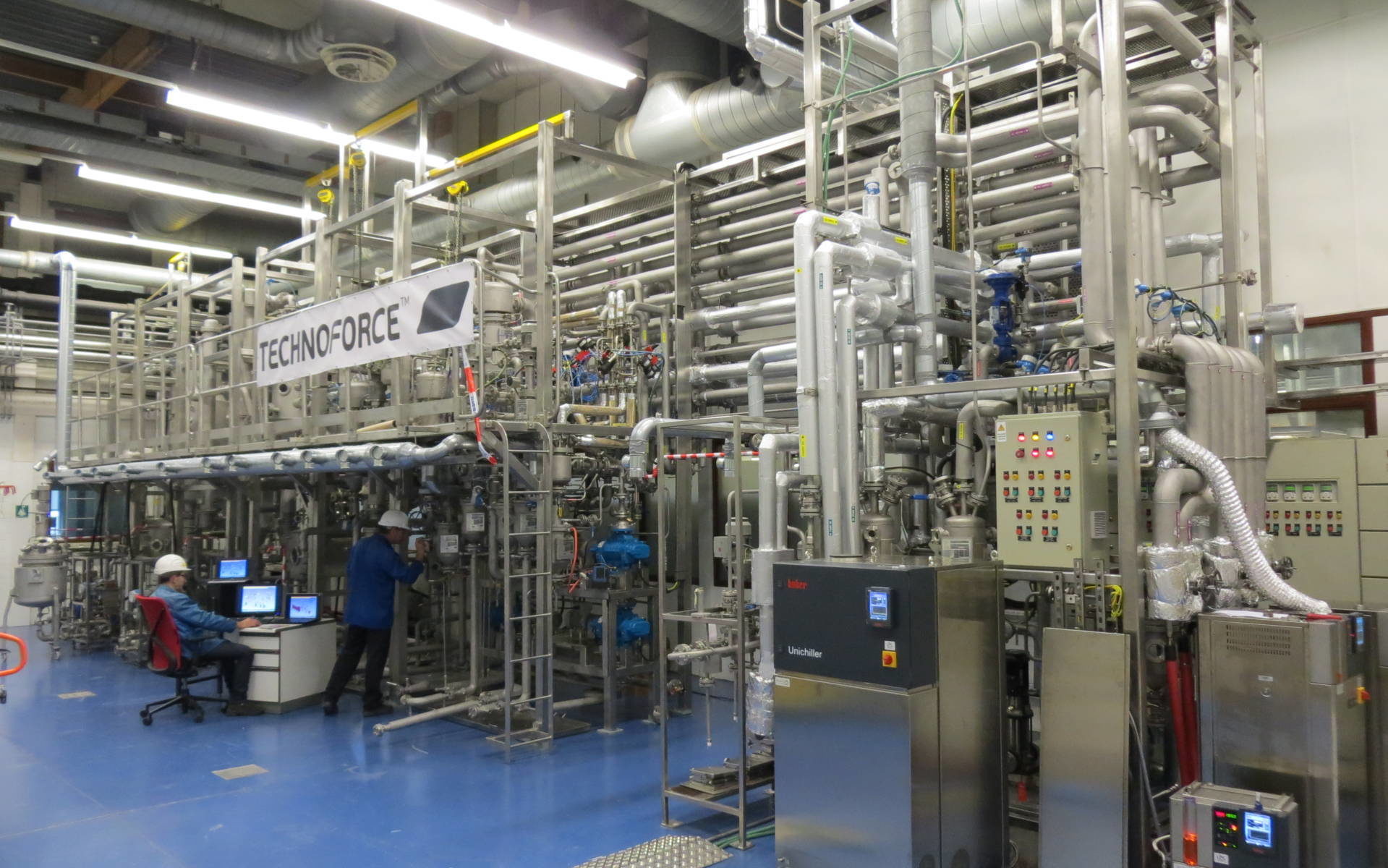‘The idea to combine these facilities and put them together in one building is actually a no-brainer,’ according to Bart van As, business development manager Biobased at Brightlands Chemelot Campus. ‘The parties – the above companies and the operator of the MPP (Chemelot Research Facilities, eds.) – do not have to invest as much because they share the costs of infrastructure, pipelines and cables, exhaust systems etcetera. If each of these parties had to build their own pilot plant themselves, the costs would end up considerably higher.’
The InSciTe programme (also see Agro & Chemie number 4, 2015) will take up two thirds of the capacity in the MPP. The remaining space is available for businesses which want to take the step from proof of principle to pilot production and/or which want to generate sufficient product for performing further tests.
Classic chemistry
The MPP concentrates on scaling up biobased chemicals, but it is geared towards classic chemistry, emphasises Van As. ‘We have a unique proposition with the MPP. The pilot plants in Ghent and Delft are oriented more towards pretreatment and fermentation. We do not deal with fibres, but with catalytic-chemical and thermochemical conversions. The volumes involved vary from 50 to 500 kg per day.’
The 500 m2 of the MPP contain four so-called skids, systems which can be moved in their entirety to another location. Companies can reserve these skids for specific time blocks. ‘These are usually periods of at least two and no more than six weeks, but we are quite flexible about this,’ according to Van As.
The four skids have been set up for specific processes. Thus Flowid has a scaled-up version of its spinning disc reactor, renamed Spinpro, in the MPP. The company uses the setup for its own R&D, but it also makes it available to third parties. Flowid also participates in the InSciTe programme.
Greater throughput
Jeoffrey van den Berg, director of Flowid, has high expectations of the Spinpro reactor. ‘We can achieve considerably higher throughput – approximately 1 litre per second – than with its predecessor. This allows us to generate sufficient output in a short time which other companies can then use for testing.’
Van den Berg was asked whether Flowid would also cooperate with the other companies in the pilot plant. He responded: ‘Currently there is nothing on paper, but I can imagine that our activities and Technoforce’s knowledge of downstream processing can tie in with each other.’
The latter company produces physical separation equipment, including distillation, drying and crystallisation equipment, for various industries such as (fine) chemicals, biobased pharmaceutical and foods. The Indian corporation had a pilot plant at Chemelot for 3.5 years, but over time it outgrew its accommodation. Now the staff have room to manoeuvre again in the MPP. In addition, the company has purchased brand-new equipment.
Wider spectrum
Ben Bovendeerd, director Technology & Business at Technoforce, considers himself lucky that he registered in time for a place in the MPP. ‘We were also given the opportunity to design the layout of our space as we saw fit. We can also offer a wider spectrum of physical separation techniques. We have added two ‘plug flow’ crystallisers (at laboratory and pilot plant scale), a conical stripper and an annular centrifugal extractor to the current equipment.’
Bovendeerd sees an important role in store for physical separation techniques, for example to purify biomass flows as much as possible. ‘Biomass contains water and all kinds of contaminating components which have to be removed to make the next step possible. In the end the intended component must have a purity level of 99+ percent.’
High-quality nanocellulose
Paper manufacturer Sappi is building a pilot plant at the Brightlands Chemelot Campus for scaling up a new, energy-saving process to produce high-quality nanocellulose.
R&D director Math Jennekens: ‘This will enable us to reduce the energy consumption substantially. That is what we are going to investigate in the pilot plant. Everything is possible in the laboratory, I always say, but if you want to scale up, you have to consider CAPEX and OPEX. And then it’s the question of whether we will achieve the intended energy savings and whether we can recover the process chemicals fully. Also not insignificant: will we get sufficient nanocellulose in the desired quality from the pipeline and is the drying process efficient? The plus point of Brightlands Chemelot Campus in a general sense and the shared pilot plant facility more specifically is that there are enough experts in (pilot) processing who can support us. With advanced analysis equipment, our own or that of third parties on site, we can examine the process in greater depth for better troubleshooting.’



